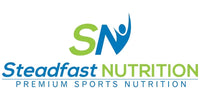
The ketogenic diet is one popular diet practised across the world to lose weight. The basic rule of the keto diet is to consume a high protein, high fat and a low-carb diet.
The approximate percentage of macronutrients in a ketogenic diet is 55-60% fat, 30-35% proteins and 5-10% carbohydrates. So, for instance, if a person consumes 2000 Kcal diet per day then carb intake will range between 20-50 grams per day.
This diet was used for the first time in 1921 Russel Wilder to treat epilepsy but later it gained vogue as a weight loss diet.
Carbohydrates are the primary source of energy for us. But during keto diet, when carbohydrate availability is limited, our body starts using fat to derive energy. This process is called ketosis in which ketone bodies are produced serving as fuel for our heart, kidneys and muscles. In addition, ketone bodies provide energy to the brain due to the potential to cross the blood-brain barrier.
It has been observed that ketone bodies produce more energy than glucose and suppress free radical damage by boosting antioxidant activity.
In this article, we will discuss some of the foods which can be included while planning a keto-diet.
- Eggs
- Fatty fish like sardine, salmon, tuna and mackerel
- Meat
- Chicken
- Full-fat milk and milk products like cheese and cream
- Good fats like coconut oil, olive oil, mustard oil and avocados
- Nuts like almonds, walnuts, pistachios, peanuts and cashew
- Nut butter like almond butter, peanut butter and cashew butter
- Herbs and spices
- Vegetables like broccoli, mushrooms, tomatoes, green leafy vegetables and other non-starchy vegetables
- Full-fat mayonnaise, but do check the nutrition label carefully before buying and avoid low-fat maida based mayonnaise
- Fresh berries
- Seeds like pumpkin seeds, chia seeds, flaxseeds and sunflower seeds
Some of the keto-friendly beverages which can be consumed are :
- Water
- Bone Broth
- Sparkling Water
- Unsweetened Tea and Coffee
- Vegetable Soup
Foods which are high in carbohydrates are not permitted in keto diet as they might increase the overall carbohydrate intake like :
- Foods made of grains like bread, pasta, macaroni, cookies, crackers and cream biscuits
- Sugary foods, beverages and sweets
- Rice, oats, cereals, wheat and other grains.
- Starchy vegetables like potato, yam, jimikand and sweet potato
- Fruits
- Alcohol
- Beans and Legumes
- Processed, packaged and junk foods
- Bad fats like margarine and trans fats
- Doughnuts, candies and chocolates
The ketogenic diet is a very controversial diet as well. Several studies have shown its short term beneficial health effects. Beginners may experience some mild symptoms like headache, nausea, constipation and insomnia. Long term studies associated with health effects still need to be reviewed more by conducting clinical trials. People taking insulin shots should consult their doctors if planning to begin this diet. Keto diet is also not recommended to patients with renal disorders, liver failure and people suffering from disorders of fat metabolism.
REFERENCES
Masood, W., Annamaraju, P., & Uppaluri, K. R. (2020). Ketogenic Diet. In StatPearls. StatPearls Publishing.
Joshi S, Ostfeld RJ, McMacken M. The Ketogenic Diet for Obesity and Diabetes—Enthusiasm Outpaces Evidence. JAMA Intern Med. 2019;179(9):1163–1164. doi:10.1001/jamainternmed.2019.2633






